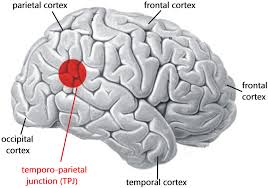Why is Sleep Important? (A Simple Enough Question, or is it…) by Sana Asemi
- Annie Z
- Sep 24, 2024
- 3 min read
Why is sleep important? It seems pretty obvious when we observe the symptoms for sleep deprivation. However, despite what you might believe, scientists have not definitively established a proven reason for why we need to sleep. For a simple action we spend a third of our life doing, we have a severe lack of information on its role for the physical body. Nevertheless, this doesn’t mean there have been no predictions made. In this article, I will be covering the 4 main theories and explaining how they might explain why sleep is essential.
Inactivity Theory:
As one of the earliest theories on sleeping, the inactivity theory, also known as the evolutionary or adaptive theory, has been challenged many times by its predecessors. This theory suggests that sleeping had been a result of evolution as animals were more likely to be attacked by predators in the night. When sleeping, the prey would likely be inactive and hidden, making it safer than staying awake. As you can probably guess, this raises questions about the vulnerabilities sleep imposes. A conscious animal would be able to protect itself way better than an unconscious one. This led to scientists sidelining the inactivity theory, leaving them to search for other explanations.
Energy Conservation Theory:
The energy conservation theory states that sleep is made to reduce energy consumption during the night when hunting is less efficient. In the night, animals are less likely to discover or hunt food, making it a less taxing time for the organism. This causes sleep to be more efficient, as in the day, the animal will be able to use the saved energy they did not use during the night. Unlike the previous theory, the energy conservation theory has evidence as during sleep, the body’s metabolism decreases up to 10%.
Restorative Theory:
As possibly one of the most popular theories of sleep, the restoration theory was suggested in 1931, by Oswald. Oswald believed that sleep was necessary to restore and repair cells that have been used during the day. It allows for the body to rejuvenate and refresh itself for another day. This concept was further backed when later, Johannis Mayer investigated Oswald’s work. It has gained even more support recently when statistics showed that people with frequent low sleep were around 3 times more likely to catch a common cold. Moreover, some bodily functions such as protein synthesis only occur during the night, making the restorative theory one of the most substantiated theories among the four.
Brain Plasticity Theory:
The most recent out of all theories of sleep is the brain plasticity theory. The term “brain plasticity” was only introduced in 1948 when Jerzy Konorski suggested that over time neurons with more activation would start creating long-term changes in the brain. Therefore, the brain plasticity theory requires the brain to have time to review collected information during the day; which scientists believe occurs in sleep. Moreover, this theory can explain why children need to sleep for longer periods of time. As infants are constantly new to every information, they would face developmental issues if they aren’t able to sleep and sort the memories gained throughout the day.
Conclusion:
When researching topics scientists are not widely knowledgeable about, it is important to consider the possibility that many of these theories could be right. Thus, scientists suspect that all of these theories could be correct in varying degrees, there may even be additional reasons not hypothesized about yet! This complexity underlines the significance of continued research into the role of sleep. By understanding the functions of sleep in the human body, we are able to understand its impact on our physical and mental health better. Ultimately leading to more convenient solutions for sleep related issues.

Sana Asemi | Discord: .intreble
References
Four Theories as to Why we Need to Sleep. (2016, November 17). Ergoflex. Retrieved September 23, 2024, from https://www.ergoflex.com.au/blog/category/ergo-flex-news/four-theories-as-to-why-we-need-to-sleep-
Neuroplasticity. (n.d.). Physiopedia. Retrieved September 23, 2024, from https://www.physio-pedia.com/Neuroplasticity
Oswald's Restoration Theory of Sleep: A Brief Summary. (2022, March 1). SONU Sleep.
Retrieved September 23, 2024, from https://sonusleep.ca/blogs/news/oswaldsrestoration-theory-of-sleep-a-brief-summary
Physiology of Sleep - StatPearls. (n.d.). NCBI. Retrieved September 23, 2024, from https://www.ncbi.nlm.nih.gov/books/NBK482512/
7 time-consuming things an average Joe does in a lifetime. (n.d.). Tempo Software. Retrieved September 23, 2024, from https://www.tempo.io/blog/how-do-people-spend-their-time




Comments